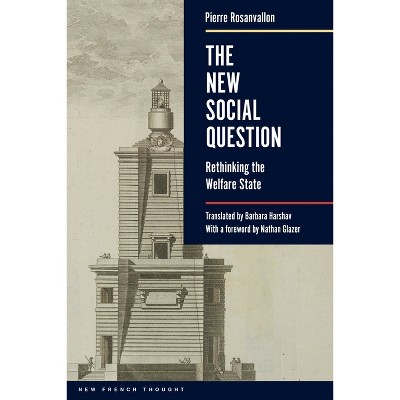Sponsored

Paul Ricur, Philosophical Hermeneutics, and the Question of Revelation - (Studies in the Thought of Paul Ricoeur) by Christina M Gschwandtner
In Stock
Sponsored
About this item
Highlights
- The topic of revelation is fundamental to any account of religious experience, playing a special role in the Judeo-Christian tradition where the texts of Scripture are regarded as revealed.
- About the Author: Christina M. Gschwandtner teaches continental philosophy of religion at Fordham University.
- 302 Pages
- Philosophy, Hermeneutics
- Series Name: Studies in the Thought of Paul Ricoeur
Description
About the Book
This collection highlights the important role of the topic of revelation in the work of Paul Ricoeur. It discusses his biblical hermeneutics and his philosophical hermeneutics of the self on such topics as identity, trauma, or forgiveness, and also puts him in conversation with...Book Synopsis
The topic of revelation is fundamental to any account of religious experience, playing a special role in the Judeo-Christian tradition where the texts of Scripture are regarded as revealed. Yet, any reflection on the revealed status of a given message or text requires interpretation. Paul Ricoeur, one of the most important hermeneutic philosophers of the twentieth century, provides crucial insights on how such interpretation might proceed and what it might mean for texts to be revealed. Edited by Christina M. Gschwandtner, Paul Ricoeur, Philosophical Hermeneutics, and the Question of Revelation brings together major scholars of Ricoeur's work on the topic of revelation, showing both the role it already plays in his work and how his thinking might be taken further. Several contributors trace the development of his thought in regard to the concept of revelation. Others discuss the revelatory dimensions of Ricoeur's hermeneutics of the self, especially for such issues as identity, trauma, and forgiveness. Several contributions also place his work in conversation with that of other seminal thinkers on the topic of revelation, such as Karl Barth and Paul Tillich.
Review Quotes
'Revelation' this key-note of many religions cannot be compared to a regolith miraculously collected from the surface of an asteroid and brought safely to earth for recovery by theologians. Christina Gschwandter's introduction and the following essays not only highlight Ricoeur's rejection of a monolithic and univocal concept of divine revelation and his life-long philosophical plea for a polyphonic and polysemic understanding, grounded upon the biblical texts, but also explore new issues regarding selfhood, forgiveness and resilience. In our world where the temptation of despair lurks everywhere, this book gives a new actuality to the question: 'What may we hope for?'"
Hermeneutics was traditionally concerned with the interpretation of sacred texts. This fine volume shows how Ricoeur stands in this tradition through his careful readings of the Bible. If he heeds the call of Karl Barth by taking revelation seriously, he tends to follow Rudolf Bultmann in his hermeneutic appropriation of revelation in which he recognizes texts that can be called revealed to the extent that they are revealing and revelatory about the human condition. This volume is itself most revealing in that it helps us understand how for Ricoeur, and our time more generally, religious symbols and narratives can give rise to thought.
This book marks a welcome new engagement with Ricoeur's philosophy of religion. It convenes leading hermeneutic scholars in a fascinating exploration of the origins and implications of Ricoeur's thinking about revelation.
About the Author
Christina M. Gschwandtner teaches continental philosophy of religion at Fordham University.











